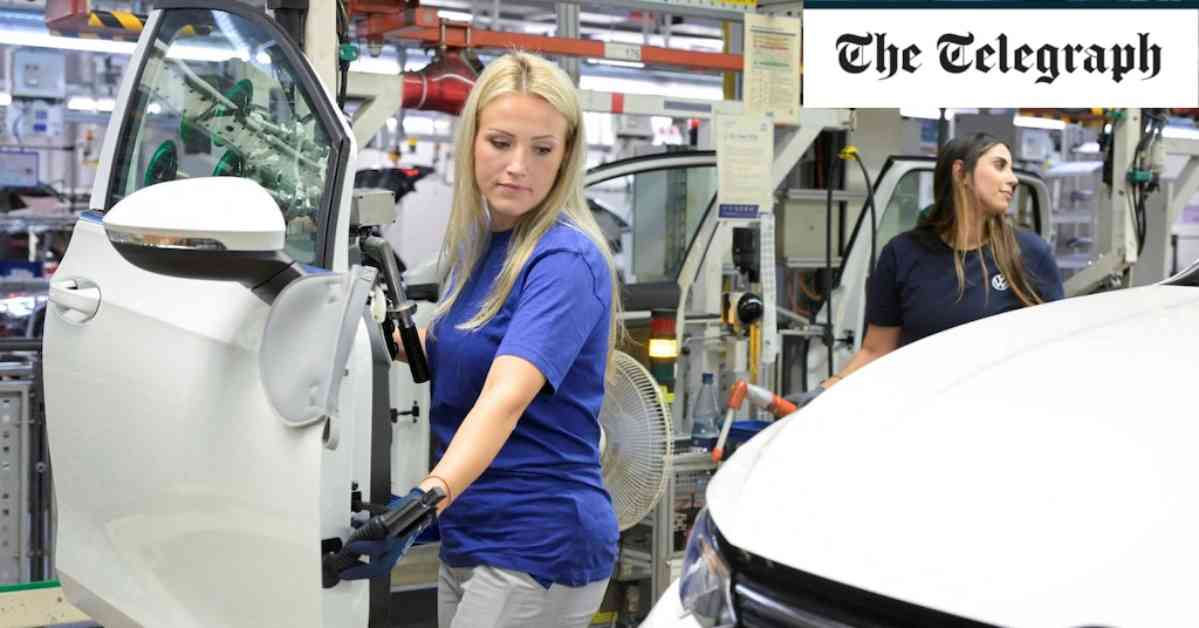Volkswagen Contemplates Closing German Factories Amid Restructuring Plans
Volkswagen, one of the world’s leading car manufacturers, is facing a significant challenge as it considers the closure of factories in Germany for the first time in its long history. The company, which was established in 1937, is grappling with the need to cut costs and adapt to the growing demand for electric vehicles. The potential closure of factories in Germany is part of Volkswagen’s efforts to save several billion euros as it navigates the changing automotive landscape.
The announcement of possible plant closures has sparked concern and opposition from labor unions, who view it as a detrimental move for the company. The powerful works council union has expressed strong resistance to the executive board’s plans, calling it a “black day” for Volkswagen. The tension between management and labor unions is evident as Volkswagen seeks to implement cost-cutting measures and streamline its operations.
The Challenge of Transitioning to Electric Cars
As Volkswagen grapples with the need to reduce costs and improve efficiency, the transition to electric cars presents a significant challenge for the company. The shift towards electric vehicles is a global trend driven by environmental concerns and advancements in technology. Volkswagen, like many other automakers, is investing heavily in electric mobility to meet the growing demand for sustainable transportation options.
The decision to potentially close factories in Germany is a reflection of Volkswagen’s strategy to realign its operations and focus on electric vehicle production. The company’s commitment to sustainability and innovation is evident in its efforts to develop electric cars and reduce its carbon footprint. However, the transition to electric vehicles requires significant investment and restructuring, which may necessitate difficult decisions such as factory closures.
Impact on Workers and the Economy
The potential closure of Volkswagen factories in Germany could have far-reaching implications for workers and the economy. With nearly 300,000 employees in Germany, Volkswagen is a major employer in the country and a significant contributor to its economy. The threat of job losses and factory closures has sparked concern among workers and labor unions, who fear the impact on livelihoods and communities.
The economic environment in Germany is becoming increasingly challenging, with rising power prices and a slowdown in the manufacturing sector. The uncertainty surrounding Volkswagen’s restructuring plans adds to the economic pressures facing the country. The German government, which holds a stake in Volkswagen, is closely monitoring the situation and is likely to intervene to mitigate the impact of any factory closures.
Navigating the Road Ahead
As Volkswagen grapples with the decision to potentially close factories in Germany, the company faces a delicate balancing act between cost-cutting measures and maintaining its competitiveness. The transition to electric cars presents both opportunities and challenges for Volkswagen, requiring strategic planning and investment to ensure a successful shift towards sustainable mobility.
The role of labor unions and worker representatives in the decision-making process is crucial, as they advocate for the interests of employees and seek to protect jobs in the face of restructuring. Volkswagen’s management must engage in constructive dialogue with labor unions and stakeholders to find a mutually beneficial solution that ensures the company’s long-term viability while safeguarding the interests of workers.
In conclusion, the potential closure of Volkswagen factories in Germany underscores the complex challenges facing the automotive industry as it transitions to electric mobility. The company’s restructuring plans are a reflection of its commitment to innovation and sustainability, but they also highlight the need for strategic decision-making and collaboration with stakeholders. As Volkswagen navigates the road ahead, it must prioritize transparency, dialogue, and stakeholder engagement to ensure a successful transition to a more sustainable future.












